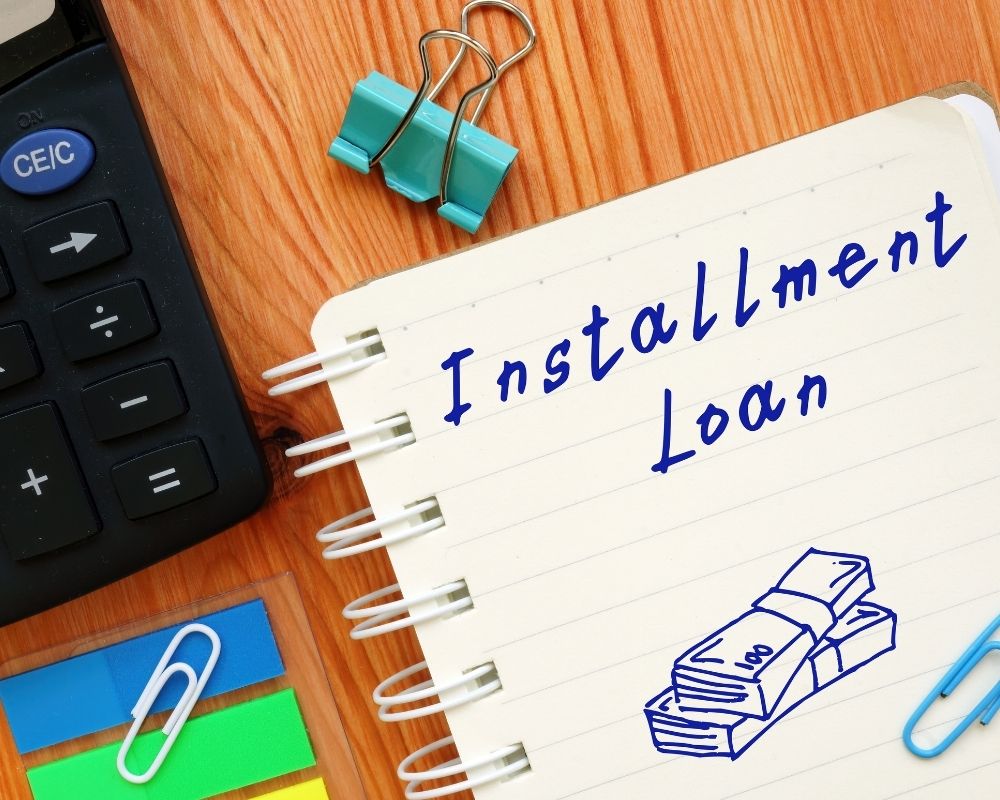If you’ve ever taken out a car loan or a mortgage, you have taken advantage of an installment loan. These types of loans put your biggest purchases within reach by breaking them down into smaller payments lasting from several months to 30 years.
These loans, however, are not necessarily the best fit for every bigger purchase. Considering the costs of applying and paying for a loan, as well as other pros and cons, is important.
What is an Installment Loan?
Installment loans are a type of financing that allows you to make nearly equal payments over a period. Because these loans range from hundreds of thousands of dollars over decades to smaller amounts over months, they are one of the most flexible forms of financing available.
Loans have a structure often considered preferable to credit cards. Installment loans have a period known as a “term,” during which you pay down your loan.
The interest rates for these loans are fixed, so you don’t need to worry about surprise raises in your rate. You’ll be able to plan a lot more easily because you’ll know your monthly payment amount and how long it will take to pay your loan off.
Some of the circumstances best for these loans include unexpected medical bills or consolidating credit card debts. The funds are a lump sum, requiring you to apply for a new loan if you require additional funds.
The repayment process for these loans is simple, with the amount owed going down with each payment. Once you’ve made the final payment, you are done with your obligations on this debt.
What Are the Pros and Cons of Loans Paid Over Time?
An installment loan is ideal for large purchases where you lack a reasonable means of coming up with the money upfront. Although these loans are often helpful, there are also disadvantages to consider. Even though your large purchase is covered, you still need to consider whether you can afford the loan.
Having a large payment or purchase spread out over months is always attractive, along with a fixed interest rate. Knowing exactly when the payments start, and the end is also helpful. Borrowers with flawed credit also have chances of getting a loan, although the interest rates might be higher.
Some of the disadvantages that may come with these loans include fees that are somewhat high. Payment flexibility may also be a problem if you have an emergency. Defaulting on these loans can also have serious effects on your credit.
What Are Some Installment Loan Alternatives?
There are also alternatives to installment loans that you may want to consider. Credit cards with a 0% APR introductory rate are helpful. Making sure you can pay off your card’s balance is essential to avoid getting hit with high-interest rates.
Personal lines of credit that you can draw on at need may also be helpful. These credit lines might be secured or unsecured, depending on your credit rating. Lines of credit are like credit cards but usually have lower interest rates.
Should You Use a Loan for Your Large Purchase?
Although loans are often a flexible way to fund a large purchase, you’ll need to think about whether a loan is the best overall option. In addition to whether you can afford the payments, and whether the reason for getting the loan is a “need” or “want.”
For example, taking out a loan to fund an expensive vacation may not be your best option. However, if using a loan for debt consolidation or home improvement, this is a use that may improve your life and net worth.
If you are considering whether an installment loan is best for your situation, please contact us to discuss your options.










